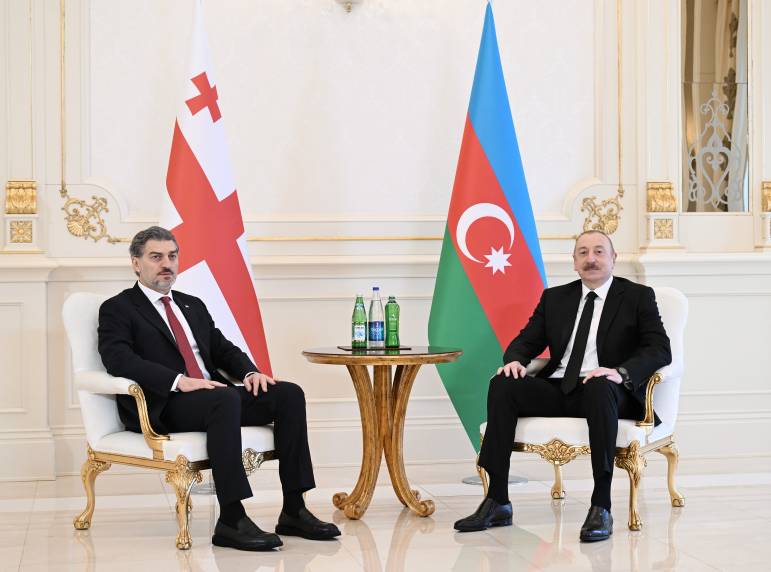20:15
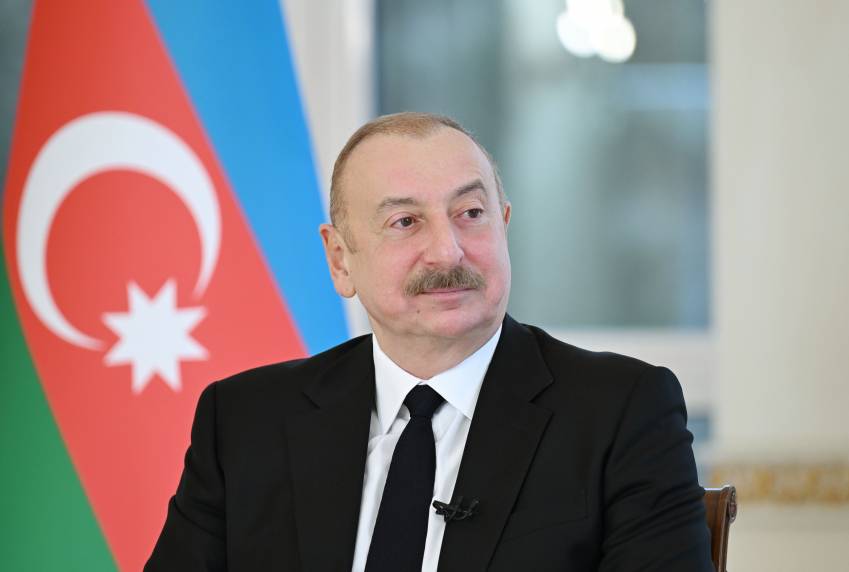
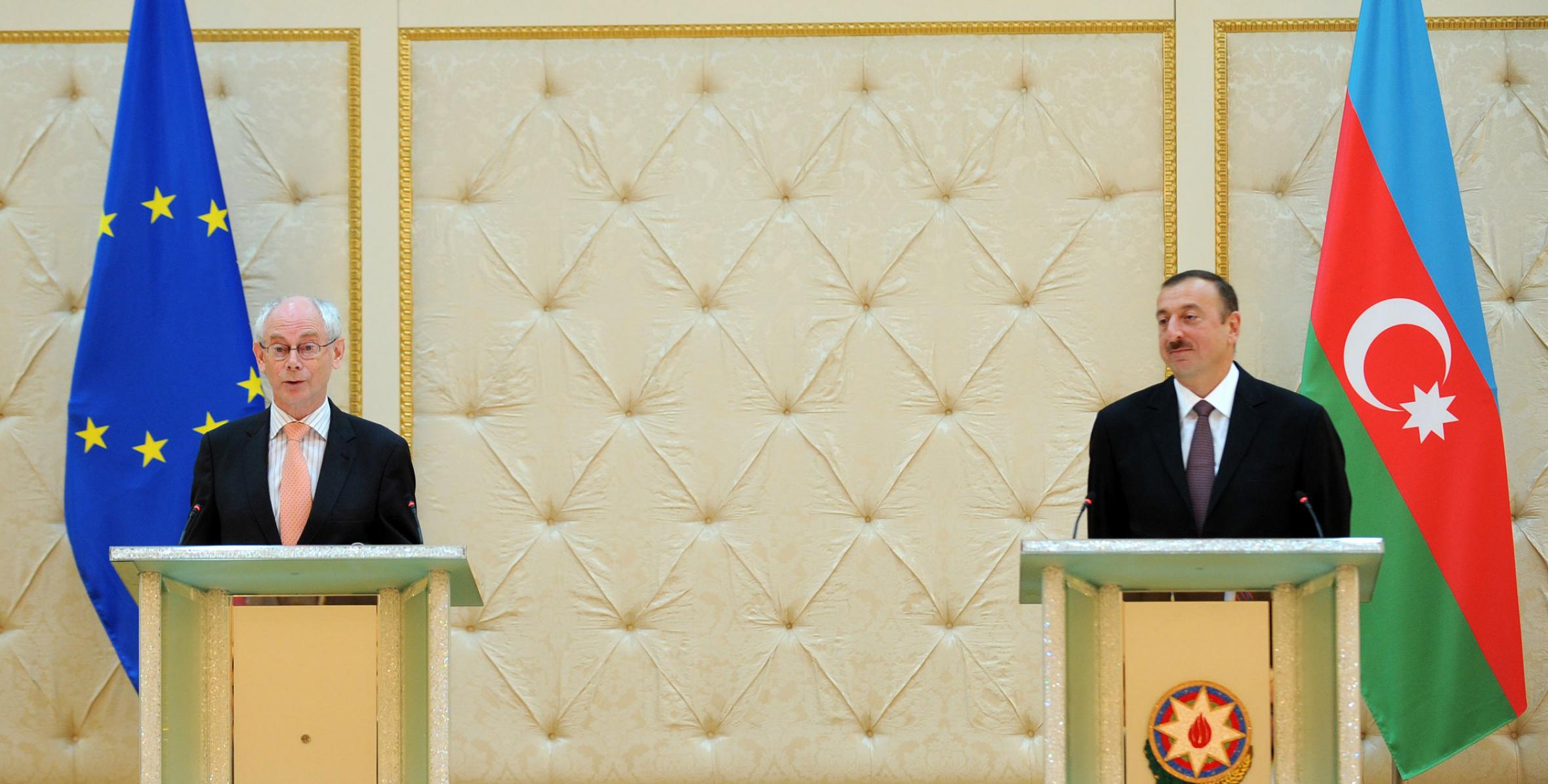
After the meeting in an expanded format, President of Azerbaijan Ilham Aliyev and President of the European Council Herman Van Rompuy made statements for the press.
Statement by President Ilham Aliyev
- Dear Mr. President!
Dear guests, ladies and gentlemen!
Mr. President, let me welcome you to Azerbaijan again. I am grateful to you for accepting my invitation to pay a visit to Azerbaijan.
We have held extensive discussions on issues of mutual interest today. The relations between European institutions and Azerbaijan are developing very successfully. Last year we celebrated the 20th anniversary of the restoration of our independence. All these years are remembered for active cooperation between Azerbaijan and European institutions. At present, these relations have successfully evolved into a new form of partnership. We are working on a number of issues of regional scale – political development, economic cooperation, energy and regional security. I note also that Azerbaijan has good bilateral relations with countries of the European Union. These relations are based on strong mutual interests, respect and friendship.
We have discussed a broad agenda of relations between Europe and Azerbaijan. We have reviewed the political developments and reform taking place in Azerbaijan. I told Mr. President that Azerbaijan is committed to a policy of political reform and democratic development. We are working to strengthen the rule of law, protect political freedoms and human rights. I think that Azerbaijan has achieved significant development in the years of independence. All fundamental freedoms – the freedoms of religion, assembly, the press – are provided in Azerbaijan. There is a free Internet.
Of course, the relations between Azerbaijan and European institutions in this respect will be continued, enabling us to apply Europe’s positive experience in this field.
We have also discussed issues of regional development and security, in particular the situation over the settlement of the conflict between Armenia and Azerbaijan. I briefed Mr. President on the current status of the issue. Azerbaijan is committed to the process of negotiations. But we want to see specific results as soon as possible.
Azerbaijan’s internationally recognized territories have been under Armenian occupation for 20 years.
Armenian armed forces have occupied not only Nagorno-Karabakh but also seven other Azerbaijani districts. Armenia has implemented a policy of ethnic cleansing, as a result of which we have about a million refugees and IDPs and 20 per cent of our land is still under occupation. International organizations have passed a number of resolutions on the issue, including four UN Security Council resolutions, decisions of the European Parliament, the Council of Europe, the OSCE. Unfortunately, none of these resolutions has been executed.
I have brought to Mr. President’s attention that we were very encouraged by the statement of leaders of the OSCE Minsk Group co-chair countries on the unacceptability of the status quo. I think this is a very meaningful and timely statement. We do hope that after such an important statement we will actually see the status quo changing. The change of the status quo means a start of the liberation of occupied lands. This will lead to a positive development in the region.
Immediately after the liberation of the Armenian-occupied lands, all communications can be opened and regional cooperation initiated. This will benefit all countries.
We have great hopes for the efforts of mediators and hope that this issue will soon be resolved.
Azerbaijan’s internationally recognized borders will be restored, our people will exercise their basic right to return to their homes. This fundamental right of Azerbaijani IDPs has been violated.
We have also discussed energy security issues and these discussions will be continued. I would also like to say that Azerbaijan has initiated key energy projects in the region. It was us who opened the energy corridor to transport hydrocarbon resources of the Caspian Sea to European and world markets. Today, Azerbaijani oil accounts for nearly 30 per cent of the energy balance of some European Union member countries. This means that we are ensuring the energy security of our partners in Europe.
The development potential of Azerbaijan’s oil industry is very high. We have a number of oil pipelines and, accordingly, a great potential for the future. Azerbaijani oil will play an important part in the energy security of our friends in the coming decades. Also, the State Oil Company of Azerbaijan is actively investing in Europe. There are plans to continue this cooperation and favorable bilateral agreements in the future.
Azerbaijan has already become a major exporter of gas. We have discovered major gas fields. Three main fields – Shah Deniz, Umid and Absheron – contain the bulk of Azerbaijan’s gas reserves. But I am sure that we will witness the discovery of more fields in the coming years. The internationally confirmed level of gas reserves in Azerbaijan is 2.6 trillion cubic meters. We have also diversified our gas transit network. We have recently signed a historic agreement with Turkey on a Trans-Anatolian gas pipeline project in which Azerbaijan's share is 80 per cent. This means that we have undertaken primary responsibility for project implementation and financial commitments. We have assumed leadership of the TANAP project and I am sure it will be a factor in the successful outcome.
Thus, the energy projects we have initiated, funded and implemented thus far have been successful. This is a very important issue for us, for our partners. This is a diversification issue. Speaking of diversification, we certainly mean the diversification of sources. This is the case now. Azerbaijani gas is a new source of energy for the world, for Europe.
The European market is very attractive to us because it is huge. It is a liberal law-governed market. This brings us to the important issue of a balance of interests between producers and consumers. Of course, we cannot forget about transit countries either. I think the coincidence of these interests will contribute to the successful implementation of energy projects. These projects will last for decades, maybe a hundred years or more. Azerbaijan has established itself as a reliable partner from economic, energy and political standpoints. I am sure that the energy component of our cooperation will be successful. But, of course, this is not the only issue of mutual interest.
We have many plans also in terms of economic cooperation, mutual investment, political collaboration, regional security and development. In other words, Mr. President and I spent one and a half hours discussing these issues today. Many other issues should also be discussed. This shows how important these relations and the issues discussed are for us.
Mr. President, very warm welcome to our country again. I am glad that you have found time to come and see Azerbaijan and meet with us. I wish you a successful visit. Thank you.
Х Х Х
Statement by President of the European Council Herman Van Rompuy
- Mr. President, I am very pleased to pay my first visit to Azerbaijan at a time of a rapid development of your country. Although I am here for a brief stay, I have already seen many signs of rapid modernization.
From this standpoint, I would like to congratulate you and the people of Azerbaijan held on having hosted the Eurovision song contest in May. This contest, one of the most popular events in Europe, has brought Azerbaijan much closer to the European public.
Our first meeting took place when I was Prime Minister of Belgium. My visit as President of the European Council is not only a continuation of our previous meetings in Astana, Brussels and Warsaw, but also the opportunity to demonstrate the relationship between the EU and Azerbaijan again.
Today we had a fruitful discussion. We discussed many bilateral and regional issues.
I would like to mention three issues. First, let me stress that we appreciate the relationship between the EU and Azerbaijan and the way we have benefited from this cooperation. Based on our past achievements, we must work together to make a good use of our future potential. In my opinion, it serves the interests of the European Union, Azerbaijan and the entire region.
We are witnessing an intensification of our relations in various fields. Our bilateral political contacts at all levels, as well as contacts between people and business communities, are expanding. We appreciate your support in many important international issues. Our energy cooperation, an important parameter of positive bilateral relations, is rapidly developing.
The ongoing negotiations on the Southern gas corridor and the Trans-Caspian pipelines are of strategic importance to Azerbaijan and the European Union.
I welcome the recent signing of an agreement between Turkey and Azerbaijan on the Trans-Anatolian pipeline. This further strengthens Azerbaijan’s commitment and our commitment to implement the Southern gas corridor.
At the same time, there is still a great potential for a further expansion and diversification of our relations. A lot still can and should be done. In particular, we must make headway in our talks on a new association agreement, as well as trade and investment.
Mr. President, I encourage you to make better use of the opportunities provided to Azerbaijan by the “Eastern Partnership”. After the Warsaw summit we have made significant progress. We are on track to achieve the goals of the “roadmap” for the next “Eastern Partnership” summit due in Vilnius in 2013.
Secondly, Azerbaijan is a secular society and your commitment to the principle of coexistence of different religions is very important in today's world. The European Union and the region need a stable, progressive and tolerant Azerbaijan committed to democratic reform and modernization.
I have brought to the attention of President Ilham Aliyev the importance of developing civil society. In our history it has been the main factor for development. So it may be in Azerbaijan. At the same time, the implementation and continuation of reform, promotion of human rights will ensure long-term success and prosperity of Azerbaijan. It is also important to the strengthening of relations between the EU and Azerbaijan.
From this standpoint, I welcome the release last week of nine people arrested during a rally on 2 April 2011. This is a positive step for Azerbaijan and it is aimed at improving civil and political rights. But further steps should also be taken.
Third, progress in the Nagorno-Karabakh settlement should remain a top priority. Every day that passes without a solution is a wasted opportunity for us all. To achieve a settlement, there should be trust, confidence and respect. I can repeat the message I voiced in Yerevan yesterday.
Serious armed incidents that have occurred recently on the border between Armenia and Azerbaijan and on the frontline are very worrying. I have been saddened by human losses.
Military force cannot resolve the conflict. A peaceful settlement of the conflict through negotiations can change the status quo in the region towards a secure and prosperous future. If a secure and stable regional environment is created, it will benefit all.
I repeat the statements made some time ago by the European Union and more recently by OSCE Minsk Group co-chairs at a G20 summit in the Mexican town of Los Cabos: Azerbaijan and Armenia should make a decision to reach a sustainable and peaceful solution to the conflict based on Madrid principles. The presidents of both countries should fully implement the commitments undertaken within the OSCE Minsk Group. Both sides must abide by the ceasefire, exercise restraint and renounce hostile rhetoric in official pronouncements.
The European Union is ready to support the effort towards building trust and reconciliation. We have the opportunities and experiences for that. The appointment of Ambassador Lefort as new European Union Special Representative for South Caucasus and the crisis in Georgia shows the growing commitment of the European Union to resolve the conflict and a contribution to all aspects of the settlement package.
Mr. President, thank you very much again for receiving me in Baku. I am very pleased that we have reaffirmed our joint commitment to raise the partnership between the European Union and Azerbaijan to a higher level. Thank you. Let us continue our work.
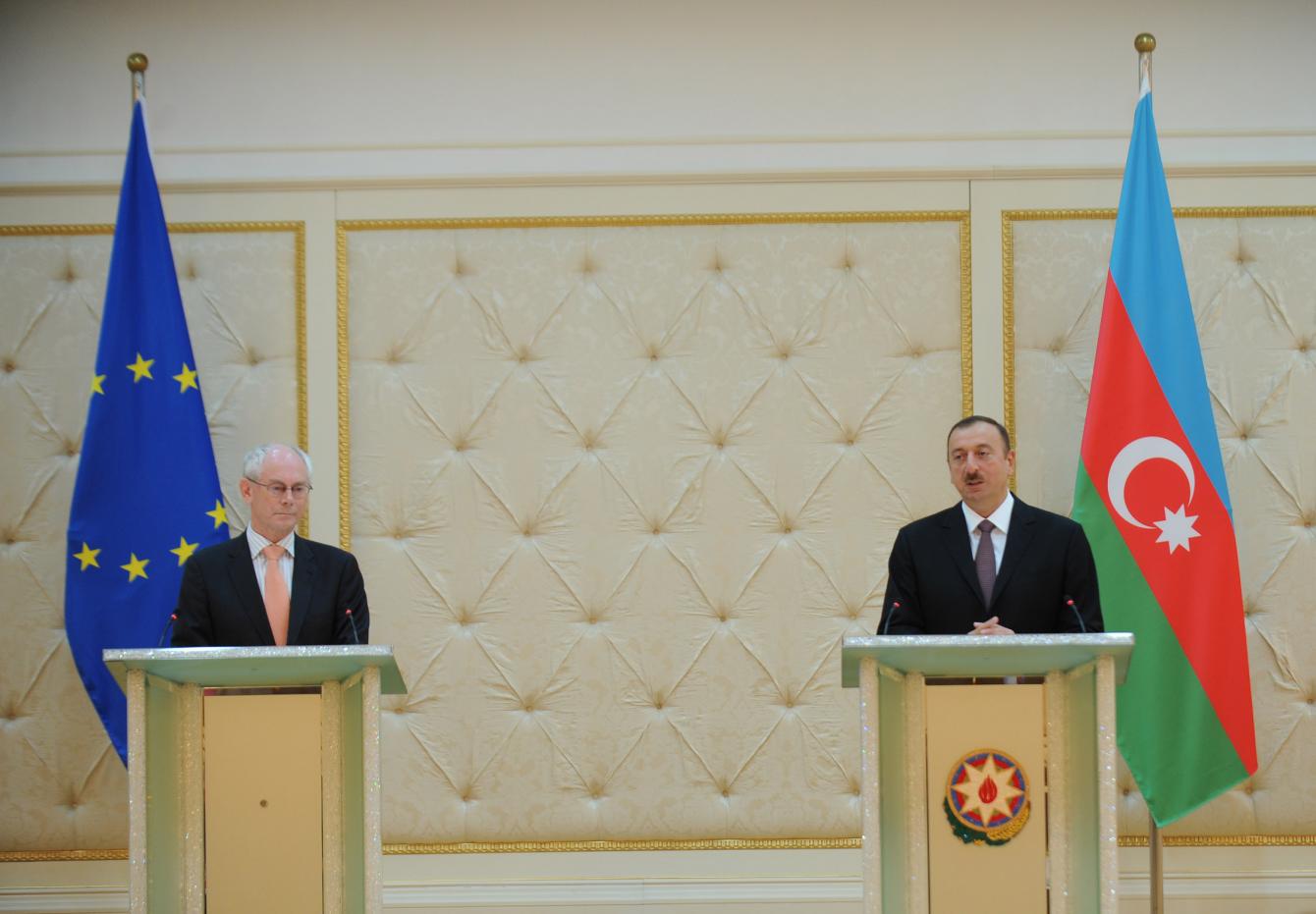
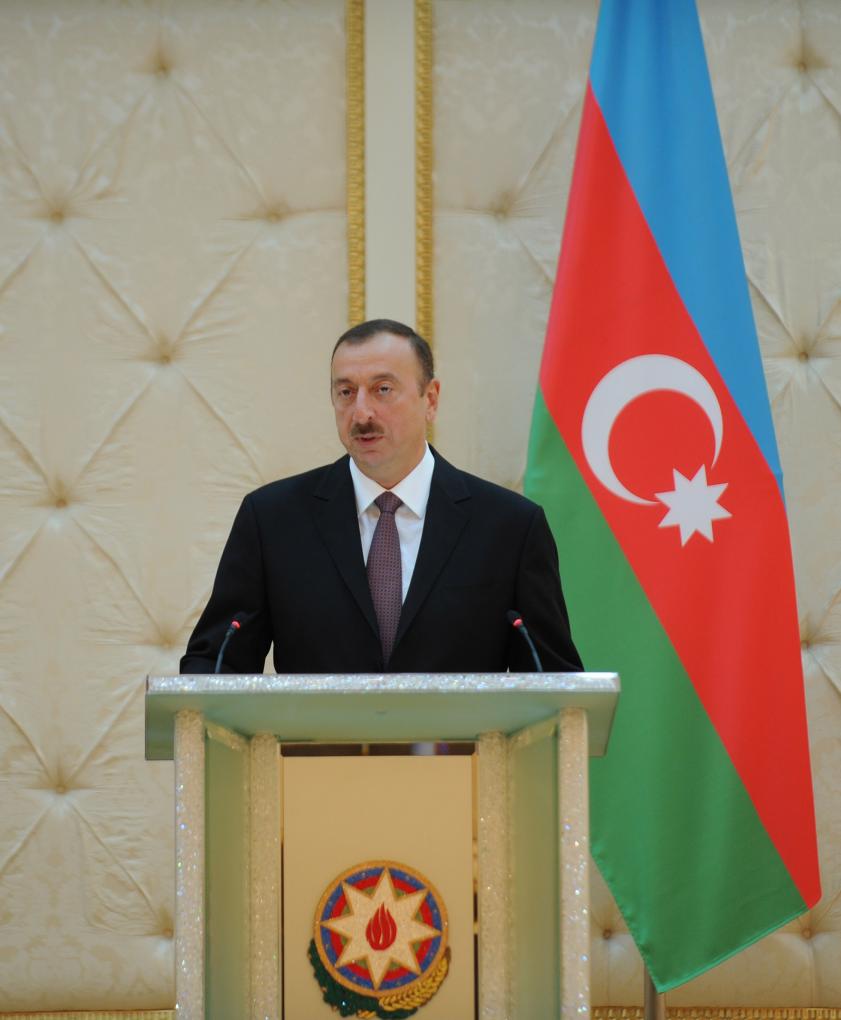
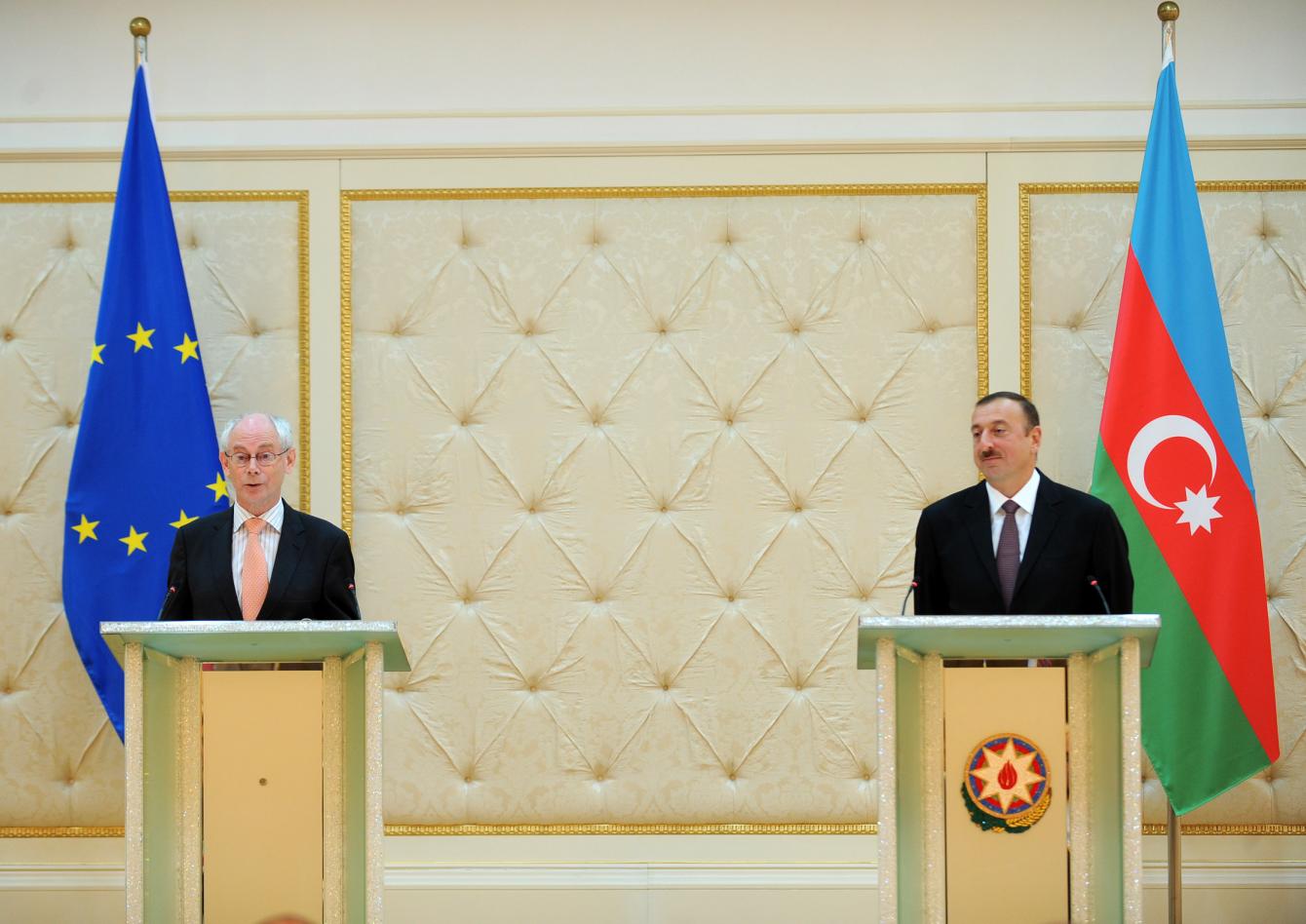

Your Eminence,
We were deeply saddened to hear of the passing of His Holiness Pope Francis, Head of the Holy See and one of the most prominent religious figures of our time.
In the person of Pope Francis, the international community and the Catholic world have lost...
21 April 2025, 14:13I sincerely congratulate you and the entire Christian community of Azerbaijan on the sacred holiday of Easter, and I extend my wishes of happiness and well-being to all of you.
In Azerbaijan, which has rich traditions of tolerance, there has never been a case of...
18 April 2025, 16:25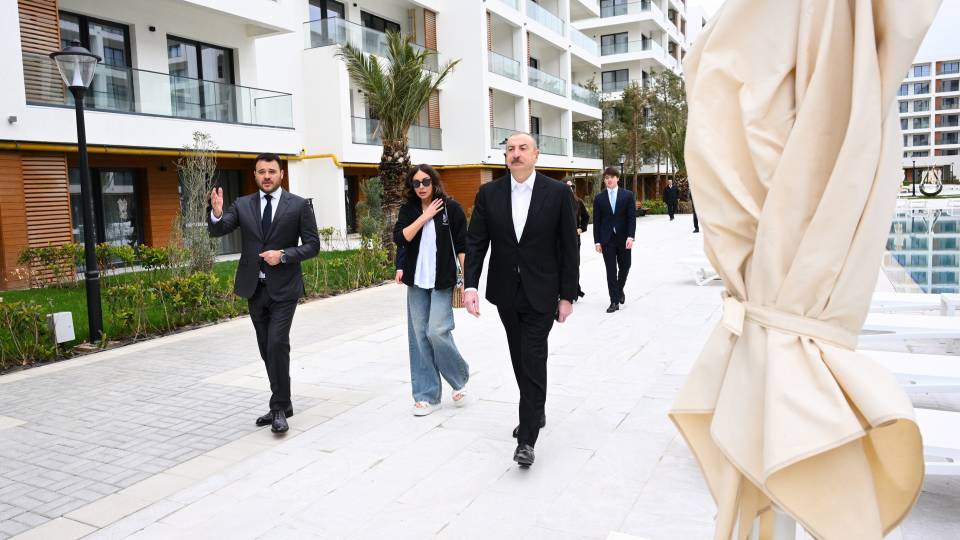
Dear Mr. Çavuşoğlu,
I was deeply saddened to learn of the passing of your father, Osman Çavuşoğlu — a profound loss for your family.
In this time of sorrow, I share in your grief and extend my deepest condolences to you and all the members of your family,...
18 April 2025, 12:37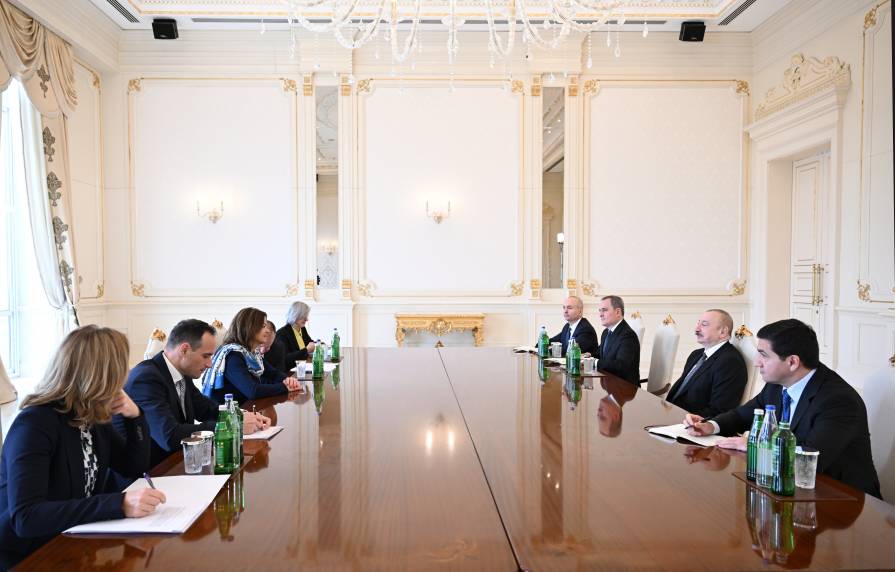
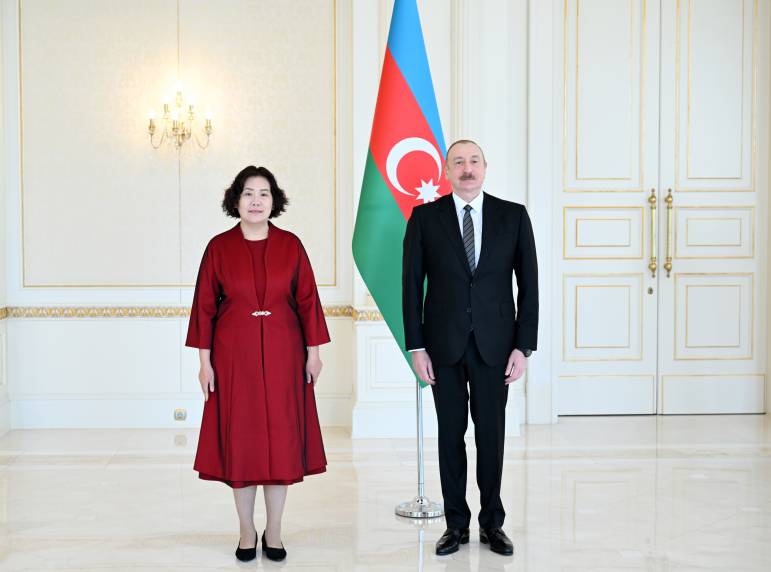
We were deeply saddened to learn of the passing of Richard Armitage – an eminent statesman, distinguished diplomat, dedicated public servant, and a great friend of Azerbaijan.
His years-long, productive service in international politics and diplomacy, coupled with...
16 April 2025, 18:06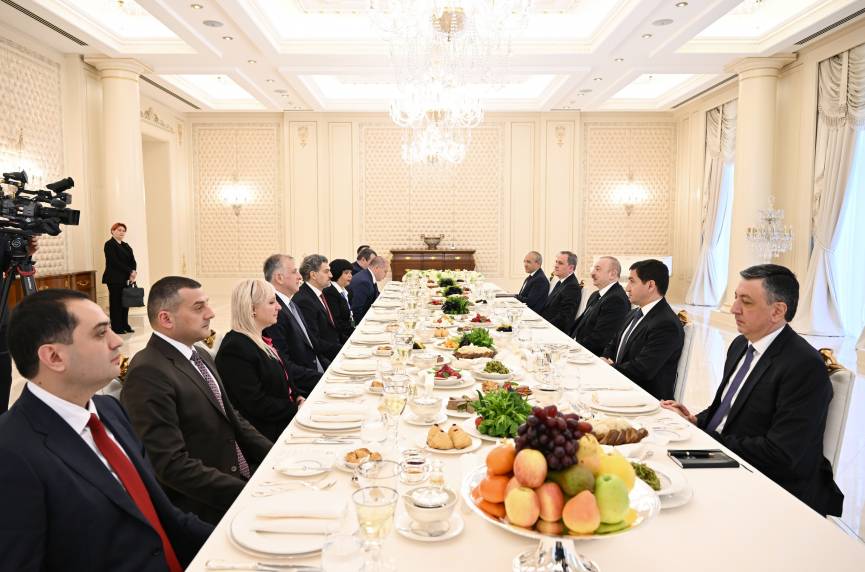
Statement by President Ilham Aliyev
- Dear Mr. President,
Dear guests,
Ladies and gentlemen,
Dear Mr. President, I would like to once again sincerely welcome you to Azerbaijan! I cordially congratulate you again on your election as a President and wish you ...
16 April 2025, 12:12